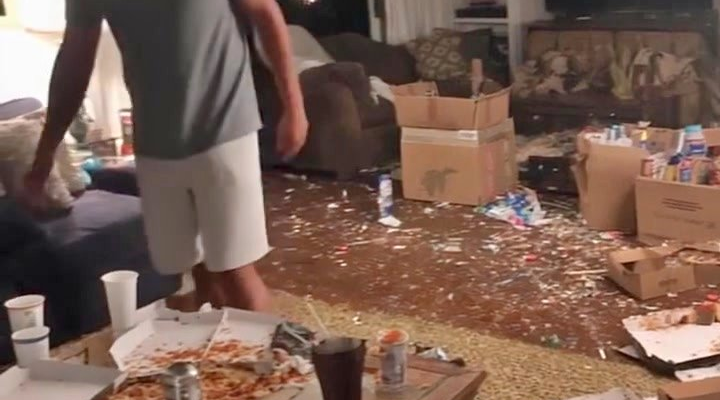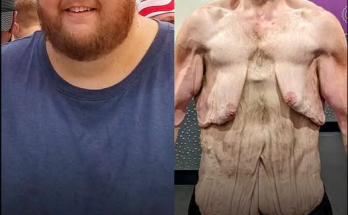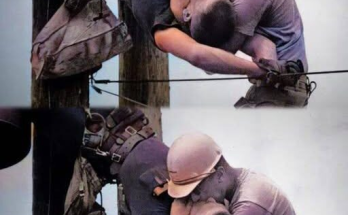I Had to Let My Husband Go After Discovering His Choices While I Was Caring for My Ill Mother
Life often takes us on paths we never imagined, and sometimes those paths reveal truths about the people closest to us. My story is one of love, grief, betrayal, and ultimately, strength. My name is Stella. I am 25 years old, and for the past few years, I thought I had everything I needed: a loving husband named Evan, a comfortable home, and plans for a beautiful future together. But when tragedy struck my family, I learned that sometimes the people we expect to lean on are the very ones who let us fall.
A Young Marriage Filled with Hope
Evan and I had been together since our late teens. By the time I turned 23 and he was 25, we decided to get married. Some thought it was too soon, but to us it felt natural. We had been through college together, started stable jobs, and even managed to buy a modest townhouse in a quiet suburb. It felt like a dream beginning.
I remember decorating that home with so much excitement—choosing curtains, painting walls, and carefully arranging furniture. We would stay up late eating takeout on the living room floor before our couch even arrived, laughing about how “this is the start of our forever.”
We weren’t just planning a marriage; we were planning a family. I had a planner filled with notes about starting to try for a baby. Evan would joke that we’d have “the cutest baby in the whole neighborhood,” and I would laugh, tossing a grape at him across the table. We talked about strollers, names, and schools. We were young, in love, and so certain we were building something strong.
A Phone Call That Changed Everything
That sense of security shattered one afternoon when my phone rang. On the other end was news that pulled the ground out from under me: my mother had been diagnosed with stage four cancer. The doctors said she might have only six months to live.
My mother wasn’t just a parent to me—she was my closest friend, my confidante, my anchor. She raised me single-handedly after my father passed away, and the idea of losing her so young felt unbearable.
I remember sitting in our kitchen, the phone trembling in my hands, as tears blurred everything. Evan was right there, pulling me into his arms, whispering that I needed to be with her. “Don’t worry about me,” he said. “Go to her. She needs you more.”
At that moment, I thought I had the most supportive husband in the world. His reassurance gave me the strength to pack my bags and move back to my childhood home, three hours away, to care for my mother.
Living Through My Mother’s Final Months
Those months were the hardest of my life. I became my mother’s caretaker, driving her to endless appointments, sitting by her side during painful treatments, and holding her hand at night when she cried from exhaustion and fear.
She often told me I should go back home, that I was too young to spend all my time in hospitals. But I couldn’t leave her. She had always been there for me, and I promised myself I would be there for her until the very end.
Evan and I spoke on the phone every few days. He always sounded supportive, telling me he missed me but that he was “managing the house.” He even joked that he had learned to cook so he wouldn’t survive on just cereal. At the time, I felt grateful. I believed him.
But he never once visited. Each time I asked, there was an excuse—work shifts, long drives, or not wanting to “intrude” on my time with my mother. I told myself he was just giving me space to grieve and focus.
Six weeks ago, my mother passed away. Losing her felt like losing a part of myself. I buried her, packed up her belongings with tears streaming down my face, and sat alone in her now-empty room, inhaling the faint scent of her perfume one last time.
Through it all, I clung to the thought that at least I had Evan waiting at home. I pictured walking into his arms and finally allowing myself to collapse after months of holding everyone else together.
Coming Home to a Stranger
When I finally drove back to our townhouse, I was emotionally exhausted but hopeful. Instead of comfort, I opened the door to chaos.
The smell hit me before anything else: sour beer, greasy food, stale sweat. The living room was unrecognizable. Pizza boxes stacked high, dirty cups everywhere, dust thick enough to write in, and stains on the rug I had so carefully chosen.
“Evan?” I called out, my heart racing.
That’s when I realized—he wasn’t alone. Two men I didn’t recognize were lounging on the couch with drinks in hand, music blasting. And there stood Evan, shirtless, holding a beer, looking more like a carefree frat boy than the man I had built a life with.
One of the men nudged him. “Uh, dude… company.”
Evan spun around, his eyes widening. “Babe! You’re back early!”
“Early?” I said, dropping my suitcase. “I just buried my mother.”
The strangers quickly scrambled out, offering awkward apologies. Evan, however, tried to brush it off. “They’re just my colleagues. We were… networking.”
I looked around at the mess. This wasn’t networking. This was weeks, maybe months, of partying.
His Excuses and My Breaking Point
When we were finally alone, Evan tried to explain. He said he had been lonely, that the nights were hard, that he needed distractions. He told me it “wasn’t what it looked like.”
But I had eyes. It looked exactly like what it was: a string of parties, irresponsibility, and complete disregard for the vows we made.
I asked him where he was when I was spoon-feeding my mother during chemo, or when I was planning her funeral. His only response was, “I thought giving you space was best.”
That’s when I realized: this wasn’t about grief. This was about choices. He hadn’t been lost without me—he had been free without me.
I told him to pack a bag and leave. He looked shocked, like he didn’t recognize the woman standing in front of him. But I meant it. That night, I locked the door behind him and breathed freely for the first time in months.
The Backlash

The next day, the phone calls started. His mother begged me to reconsider, saying, “Men grieve differently.” His sister pleaded with me to meet him for coffee. My own aunt even said divorce was too extreme.
But to me, the truth was simple: at 25, I had just buried my mother. My husband hadn’t stood beside me once. Instead, he turned our home into a frat house. That wasn’t a mistake—it was a decision.
I couldn’t forgive that.
Choosing Myself
I spent the next few days cleaning every corner of the house, throwing out the beer bottles, scrubbing the stains, and opening every window until the smell of neglect faded. I placed my mother’s framed photo on the mantle with a candle beside it. For the first time, the house felt like mine again.
Evan’s texts came nonstop—apologies, pleas, promises to change. But I didn’t respond. I had already seen the truth. If I had been gone another six months, nothing would have been different.
I changed the locks the following morning. When the new deadbolt clicked into place, it felt like closure.
Finding Strength in Grief
I started grief counseling shortly after. My therapist told me something that stuck: “Grief exposes character. How someone behaves when no one is watching says everything.”
She was right. Evan showed me who he was when life got hard—and it wasn’t the partner I needed.
Today, my home is peaceful again. Fresh flowers sit beside my mother’s photo. Some days I cry, other days I smile, but I feel steady. I know I deserve a partner who shows up when it counts, not one who crumbles and hides behind excuses.
Evan failed the greatest test of our marriage. And because of that, I chose myself.



